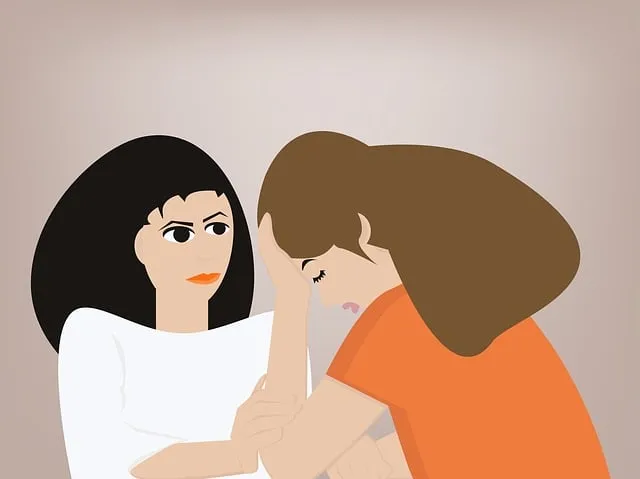Louisville Kaiser Permanente's mental wellness group facilitation is a key service component, offering safe, supportive spaces for diverse individuals to connect and grow. Facilitators use dynamic techniques to enhance communication, build resilience, and promote understanding. Through tailored approaches like Mental Wellness Coaching and Journaling Exercises, they empower clients in depression prevention and overall mental wellness. Success is measured using both quantitative outcomes and qualitative experiences, focusing on engagement, trust, and personal progress within a therapeutic environment enriched by active listening and conflict resolution skills.
In the realm of mental wellness, group facilitation plays a pivotal role in fostering community and healing. This article explores effective techniques employed by facilitators at Louisville Kaiser Permanente Services, delving into the unique challenges and strategies within this context. From understanding the dynamics of supportive groups to implementing engaging activities, we uncover key practices for creating safe spaces. By examining measuring success and cultivating an inclusive environment, professionals can enhance therapeutic outcomes for individuals seeking mental health support in Louisville.
- Understanding Mental Wellness Group Facilitation
- Role of a Facilitator in Louisville Kaiser Permanente Services
- Effective Techniques for Group Engagement and Support
- Measuring Success and Creating Safe Spaces in Therapy Groups
Understanding Mental Wellness Group Facilitation

Mental wellness group facilitation is a specialized skill that plays a pivotal role in enhancing the effectiveness of Louisville Kaiser Permanente mental health services. It involves creating and managing supportive environments where individuals can share experiences, gain insights, and build connections. Through dynamic techniques, facilitators guide groups towards fostering resilience, improving communication, and promoting understanding among members. This collaborative approach not only benefits participants but also enriches the overall mental healthcare landscape.
In the context of the Mental Wellness Podcast Series Production and Cultural Sensitivity in Mental Healthcare Practice, facilitators must be adept at tailoring their methods to diverse backgrounds and experiences. Incorporating Social Skills Training within these groups empowers individuals with practical tools for navigating interpersonal interactions. By embracing cultural sensitivity, facilitators ensure that mental wellness support is inclusive and accessible to all, reflecting the diverse communities served by Louisville Kaiser Permanente.
Role of a Facilitator in Louisville Kaiser Permanente Services

In Louisville Kaiser Permanente mental health services, the role of a facilitator goes beyond mere support; they are architects of therapeutic environments designed to enhance mental wellness. These facilitators play a pivotal role in creating safe, inclusive spaces where individuals can openly discuss their experiences, share coping strategies, and build resilience. They employ various group facilitation techniques tailored to address common challenges like mood management and stress reduction methods, fostering an atmosphere conducive to self-reflection and personal growth.
Through engaging activities, structured discussions, and empathetic guidance, facilitators help participants develop effective communication skills, improve self-esteem, and cultivate supportive peer relationships. Their expertise lies in navigating complex dynamics within group settings, ensuring every voice is heard and respected. By facilitating meaningful connections, these professionals contribute significantly to the holistic improvement of mental health outcomes among Louisville Kaiser Permanente’s diverse clientele.
Effective Techniques for Group Engagement and Support

Effective group facilitation techniques are essential for creating a supportive and engaging environment within Louisville Kaiser Permanente mental health services. One powerful tool is Mental Wellness Coaching Programs Development, which fosters active participation by guiding individuals through personal reflections and goal-setting exercises. This approach encourages members to share their experiences, fostering a sense of community and mutual support.
Additionally, incorporating structured activities like Mental Wellness Journaling Exercise Guidance can significantly enhance group dynamics. Journaling allows participants to process their thoughts and emotions privately before sharing insights with the group, promoting open and honest discussions. By integrating these techniques, facilitators can create a safe space where individuals feel empowered to support not only themselves but also their peers in navigating depression prevention and overall mental wellness journeys.
Measuring Success and Creating Safe Spaces in Therapy Groups

Measuring success in therapy groups is a delicate balance between quantifiable outcomes and qualitative experiences. At Louisville Kaiser Permanente mental health services, facilitators often employ structured assessments to gauge progress, such as pre-post surveys that evaluate changes in symptoms, self-efficacy, and social support. These metrics provide valuable data on the group’s collective progress, but they only scratch the surface. Facilitators also rely on observations of participants’ engagement, interactions, and emotional expressions to assess the therapeutic environment’s effectiveness.
Creating safe spaces is paramount for fostering open communication and building trust within therapy groups. Louisville Kaiser Permanente mental health services emphasize building a non-judgmental atmosphere where members feel seen, heard, and respected. Techniques like active listening, reflective listening, and conflict resolution skills (such as those taught through Inner Strength Development programs) empower participants to navigate interactions constructively. By promoting Mental Health Awareness and encouraging healthy communication patterns, these safe spaces become nurturing environments for personal growth and healing.
Mental wellness group facilitation plays a pivotal role in enhancing the well-being of individuals within the context of Louisville Kaiser Permanente mental health services. By employing effective techniques, facilitators create supportive environments that foster engagement and encourage open dialogue. This article has explored various aspects of group facilitation, from understanding the core principles to practical strategies for success. By measuring progress and prioritizing safety, facilitators can guide groups toward positive transformations, ultimately contributing to the overall improvement of mental health outcomes in Louisville Kaiser Permanente’s care model.





